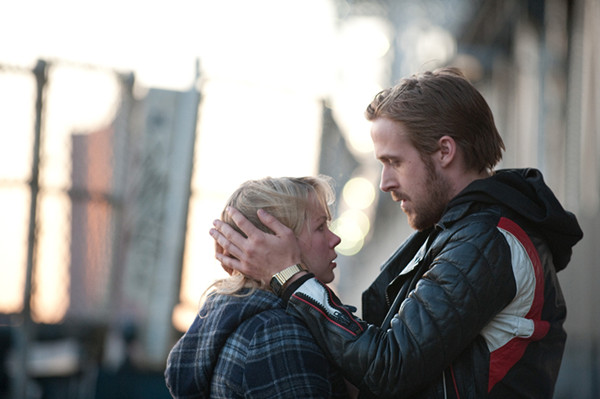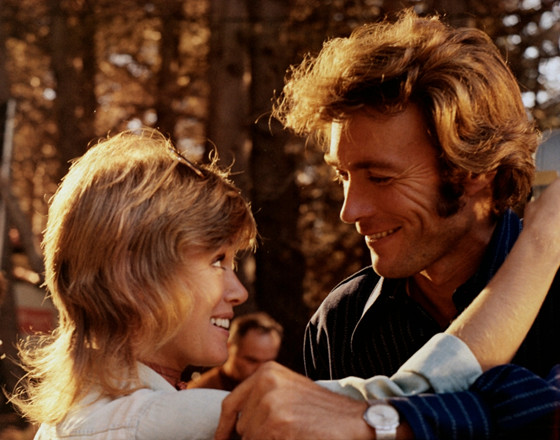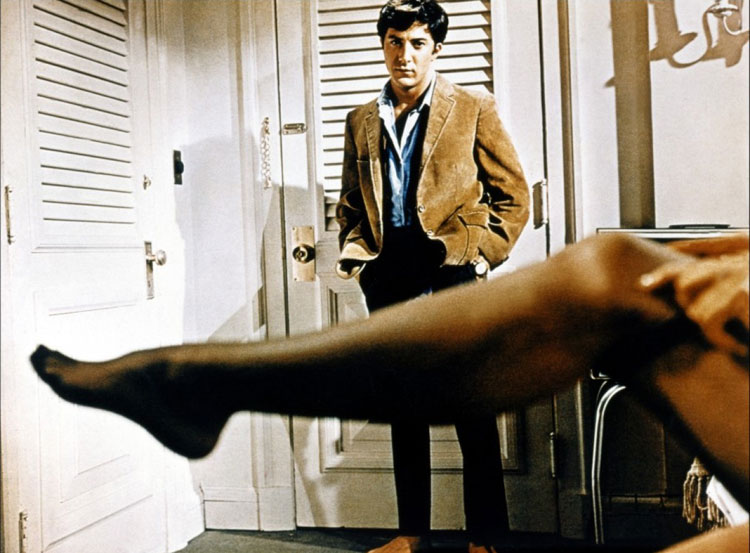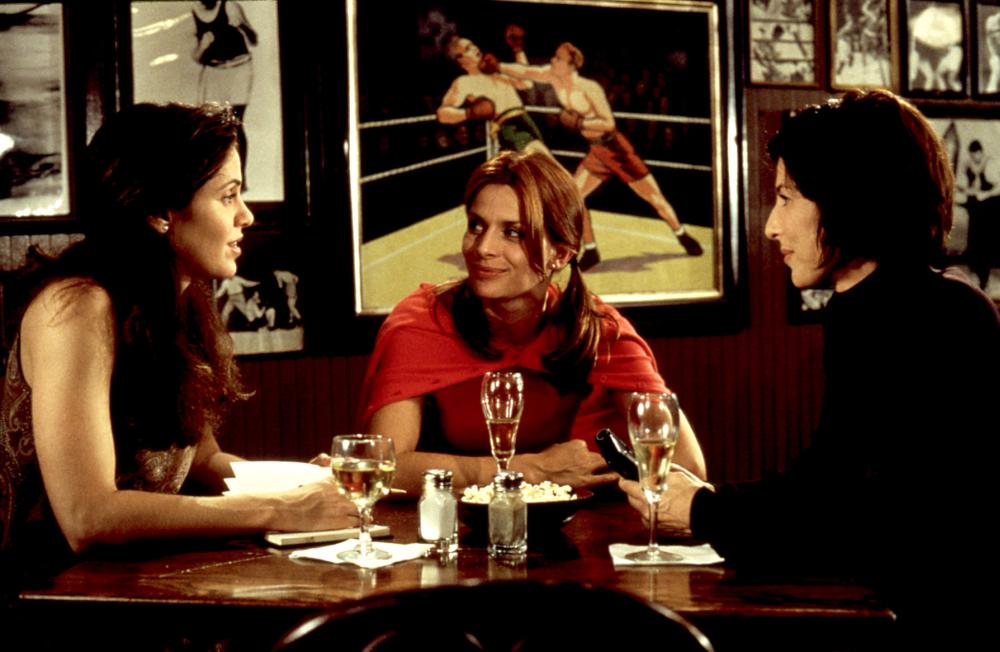6. May

Director Lucky McKee has a penchant for creating low-rent yet enticing films that go beyond typical indie horror. His 2002 film May is perhaps the most effective for its portrayal of a lonely and disturbed girl (Angela Bettis) in search of love by any costs. This search leads her to Adam (Jeremy Sisto), with whom she begins a relationship and becomes increasingly obsessed.
May’s obsessions center on various body parts of the people she meets, as well as a doll given to her by her mother to make up for her lack of friends. Both become more and more unmanageable as the film progresses, culminating on Halloween night where May goes out to collect those body parts she’s admired in order to make a real life friend.
While initially it seems that the movie is going to veer into a show of romance hewing towards the edgy teenager variety, May’s genuinely disturbing actions render that untenable.
7. Blue Valentine

Never has crumbling love been so perfectly portrayed. Blue Valentine is the story of a couple, from the time they meet until they can barely stand to look at each other. It shows the toll of what working long hours and paying bills and having kids can take on a marriage. It also shows what Ryan Gosling would look like should male-pattern baldness set in (quelle horreur).
Dean and Cindy (Gosling and Michelle Williams) attempt to rekindle their dwindling love affair by taking trip to a romance-themed motel. In between their fighting we are treated to flashbacks showing a younger and more vital couple. This film shows the true trajectory many relationships take, especially when they involve people from dysfunctional backgrounds. Dean’s quirky world view is charming to Cindy initially, but becomes a burden once she is tasked with managing much of their life together.
The resentment between the couple is palpable throughout much of the film. Cindy is disgusted by Dean’s lack of ambition, while Dean feels neglected and put aside by Cindy despite their loving start. While the film ends with a literal bang (via a fireworks show), there is no real resolution. Dean simply walks away from his family with no indication of reconciliation.
It’s gut-wrenching for anyone who’s ever been in a similar situation, still in love with what a relationship used to be but unable to spend another minute with a person you’ve grown to hate.
8. Play Misty for Me

Would you believe that at one point Clint Eastwood was considered a sort of sex symbol? Play Misty for Me, Eastwood’s first film as a director, plays on the actor’s former sex appeal in his portrayal of Dave Garver, a commitment-averse DJ who’s happy to be on his own. He meets up with Elaine (Jessica Walter, better known as Lucille Bluth) on a night out, who admits she’s a huge fan of his radio show.
The two end up spending the night together and form a sort of tenuous union until Elaine becomes obviously unhinged. Complicating matters is Dave’s former girlfriend, whom he begins to pursue after Elaine is hospitalized for a suicide attempt.
The film is actually rather conservative for a 70s offering. Dave is punished for not settling down with his perfectly agreeable girlfriend, much like in Fatal Attraction where the husband nearly gets his family killed for stepping out on his wife.
Additionally, women who partake in impulsive one-night-stands are shown to be unhinged monsters, while nice girls preserve their goodies for long-term relationships and eventually a big old shiny rock. This is no real surprise coming from Eastwood, who has made a career out of bringing conservative principles to the screen.
9. The Graduate

The Graduate is a classic of American cinema. It captures the discontent felt by those on the cusp of adulthood, and exemplifies a generational changing of the guard. It also counters any sort of romantic notions one might hold about being pursued by an older but sexy woman, as played by Ann Bancroft.
Mrs. Robinson’s dogged pursuit of Benjamin (Dustin Hoffman) is made all the more uncomfortable by the awkwardness displayed by the object of affection. Benjamin is oblivious, then intrigued, then compliant, then finally dismayed.
Unlike other movies featuring a much older woman seducing a younger man (which are usually replete with sexual awakenings and increased confidence), Benjamin’s affair only seems to induce unchecked anxiety. Once Benjamin is introduced the Mrs. Robinson’s daughter Elaine (Katherine Ross), he is an unfettered mess who initially attempts to sabotage the relationship but ultimately falls in love.
The iconic last shot only illustrates the film’s anti-romantic nature. As the young lovers are ferried away to their brand new lives together, their joyous faces turn fearful as reality sets in.
There are conflicting stories on how the shot was conceived; director Mike Nichols claimed it resulted from his command for the actors to laugh, while others stated it was caused by an assistant director forgetting to yell cut. Despite the origin, there’s no denying that it perfectly encapsulates the overall feeling of the film.
10. Your Friends & Neighbors

Much like Todd Solondz, Neil LaBute specializes in taking miserable circumstances and making them humorous (albeit without Solondz’s nihilistic glee). This is the case with Your Friends & Neighbors, which centers on two couples and their deeply unsatisfying relationships.
Jerry and Terri are two artsy types who fail to find common ground in the bedroom, while Barry and Mary are incompatible due to her dissatisfaction and his failure to recognize that she is no longer fulfilled in their relationship. Then there is Cary, a nightmare of a man who casually reveals his best sexual encounter to have been partaking in a gang rape as a teenager.
It’s difficult to sympathize with virtually any character in this movie. All four participate in some kind of infidelity, and all experience as much dissatisfaction with these events as they do with their marriages. The only character that seems truly content is Cary, but his behavior is so repugnant it’s hard to count this as a victory.
While the scenarios played out are not necessarily realistic, they do underline the fact that many married people are miserable most of the time, and if they actually did something about this misery that would most likely make them miserable too.
Author Bio: Eustacia Adams is a drinker with a writing problem. She has a degree in film theory and likes to annoy people with her meticulous knowledge of B-movie actors.